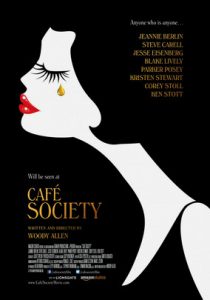Waiting for Guffman-1996
Director Christopher Guest
Starring Christopher Guest, Eugene Levy, Catherine O’Hara
Scott’s Review #1,145
Reviewed May 24, 2021
Grade: B+
Somehow mocking local community theater troupes with questionable talent couldn’t be funnier with the right premise and an outstanding cast.
The added fun of midwestern traditions like barbeques good manners and spot-on imitations put on display for humor works well.
They should be celebrated and appreciated in Waiting for Guffman (1996).
The hysterical Best in Show (2000) is probably my favorite Christopher Guest film but Waiting for Guffman is a hoot and hollering good time.
The ‘B+’ rating comes largely because Guffman is an opening act to the fab Best in Show. They can easily be watched back to back and perhaps should for further cherishing.
When the town of Blaine, Missouri approaches its sesquicentennial, the residents decide to celebrate by performing a musical revue called “Red, White, and Blaine.”
Flamboyant director Corky St. Clair (Christopher Guest) is determined to return to Broadway success by casting untalented but passionate individuals to perform.
Eugene Levy, Fred Willard, and Catherine O’Hara play the main cast members.
When Corky reveals that influential theater agent Mort Guffman will attend the opening, the cast is convinced that they will be rewarded with accolades and appearances on the Broadway stage if they perform successfully.
They become titillated, flustered, and manic as the pressure of opening night approaches.
I daresay, some folks from the midwest United States or those faithful to the local theater may not enjoy Wating for Guffman but I sure did. Most of the characters are written as buffoons and lacking any talent.
The hysterics come because they think that they possess what they lack.
The aforementioned Guest, Levy, Willard, and O’Hara work so well together they are the reason Waiting for Guffman is so damned funny! The comic timing between the actors is flawless and timed perfectly.
Levy and O’Hara appeared together in the Canadian television sketch comedy series SCTV in the 1970s and 1980s before hitting the jackpot with the television series Schitt’s Creek in later years so a fun thing to do is watch them in whatever they appear in together.
They are that good!
There abound many stereotypes in Waiting for Guffman since Corky is written as a walking gay stereotype with mascara and flamboyancy. The irony is that he reportedly has a wife who is never seen so the audience can draw their conclusions.
Given the casting and the director, Christopher Guest takes on acting and directing duties, the experience is largely improvisational and witty result.
Guest treats his actors, and himself, to famous Director Robert Altman’s mantra of letting his actors release and act on their terms, presumably knowing the characters better than anyone else.
The tactic works. Too often comedies are stagey and situations forced in an attempt to make the viewer laugh because he or she thinks they are supposed to laugh.
My favorite characters unsurprisingly are Ron and Sheila Albertson (Willard and O’Hara) as travel agents/amateur performers. They are zany and unpredictable and their antics cannot be superseded by anyone else.
Recommended mostly for the artistic and the improv comedy crowd. The spoofs are all over the place and fans of documentaries and talent shows can appreciate the gags.
Waiting for Guffman (1996) targets an intelligent audience craving fresh and original comedy. Being a cinema fan largely immersed in drama and horror, I was won over nonetheless.
The only drawback is the film pales in comparison to the brilliant Best in Show (2000) with largely the same cast and tone, but still should be watched.

